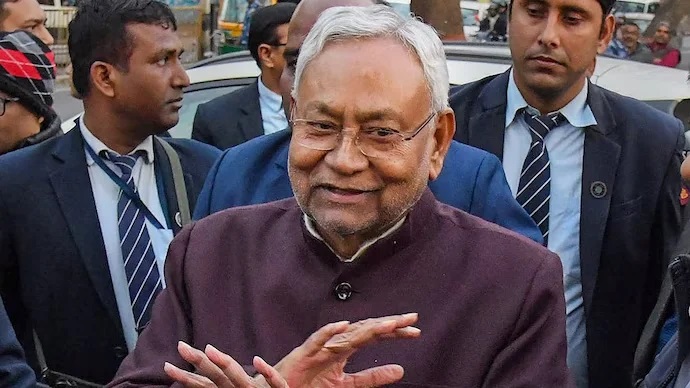Bihar floor test shortly; Nitish Kumar has majority, say sources
Bihar Chief Minister Nitish Kumar has a comfortable majority ahead of the crucial floor test in the state assembly today. The NDA alliance needs a majority of 122 to win, and sources informed that Nitish Kumar has the backing of as many as 127 MLAs.

In Bihar, Chief Minister Nitish Kumar faced a crucial trust vote in the state assembly, marking a significant moment in the political landscape of the region. The trust vote, also known as a floor test, was a decisive event following the formation of a new alliance between Kumar’s Janata Dal (United) party (JDU) and the Bharatiya Janata Party (BJP), constituting the National Democratic Alliance (NDA).
The floor test held immense importance as it determined the confidence of the assembly members in the leadership of Chief Minister Nitish Kumar and the stability of the newly formed alliance government. It provided an opportunity for Kumar to demonstrate his majority in the assembly and secure the mandate to continue governing the state.
The political developments leading up to the trust vote were marked by strategic maneuvers, realignments, and negotiations among various political parties. The formation of the new alliance between the JDU and BJP signaled a significant shift in the state’s political dynamics and alliances, presenting a formidable force in the assembly.
The trust vote proceedings witnessed intense debates, deliberations, and speeches by legislators from different parties, reflecting diverse perspectives and interests. The outcome of the vote would determine the future course of governance and political equations in Bihar, shaping the trajectory of state politics in the coming days.
For Chief Minister Nitish Kumar, the trust vote represented a crucial test of his leadership and political acumen, as well as his ability to navigate complex political scenarios and alliances. It was a moment of reckoning for him to garner support from legislators and demonstrate his effectiveness in steering the state forward amidst evolving challenges and aspirations.
The trust vote outcome carried significant implications for the state’s governance, policy agenda, and development priorities. It set the tone for the functioning of the government, its legislative agenda, and its ability to address key issues affecting the people of Bihar.
Ultimately, the trust vote represented a pivotal moment in Bihar’s political landscape, with far-reaching consequences for the state’s governance, stability, and future trajectory. The outcome of the vote would shape the course of political developments and power dynamics in Bihar, influencing the state’s socio-economic progress and political landscape in the days to come.




